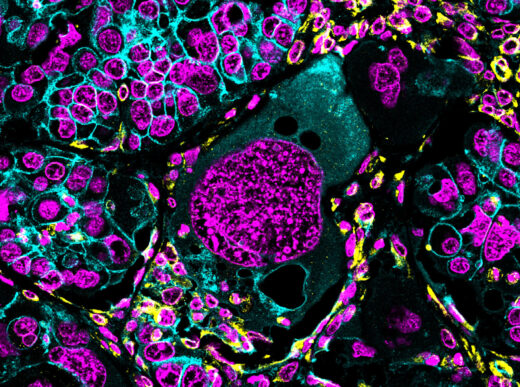The advent of weight loss drugs, particularly GLP-1 analogs, has taken the medical world by storm. Originally intended to aid diabetes patients, these drugs have exhibited an unforeseen benefit – substantial weight reduction. Studies have shown that obese individuals can shed more than 15% of their body weight, leading to FDA approval for weight reduction purposes. This breakthrough has led to a surge in demand for these drugs, resulting in shortages and a significant shift in their applications.
While their effectiveness in weight loss is undeniable, intriguing reports from patients and animal studies have unveiled a potentially groundbreaking application: addiction treatment. Early trials in this regard yielded disappointing results, primarily due to the use of less potent versions of the drugs. However, the current landscape boasts at least nine phase 2 clinical trials investigating whether the more potent compound semaglutide and similar compounds can aid patients in curbing addiction to substances like cigarettes, alcohol, opioids, and cocaine.
A Paradigm Shift in Addiction Science
The potential implications of these trials are profound. Semaglutide, also known as Wegovy, Ozempic, and Rybelsus, has generated considerable excitement within the scientific community. Neuropharmacologist Leandro Vendruscolo of the U.S. National Institute on Drug Abuse hails semaglutide as an incredibly exciting development, potentially ushering in a new era in addiction science.
Should the trials yield positive outcomes, the field of addiction science could experience a transformation akin to the impact Prozac had on psychiatry in the 1980s. This antidepressant marked a turning point in psychiatric treatment, leading to increased use of antidepressants and reshaping cultural attitudes towards mental health.
The Quest for Effective Addiction Treatments
The search for effective addiction treatments has long been a challenge in the medical community. Although the FDA has approved several medications for conditions like alcohol use disorder, these treatments only benefit a fraction of those who try them. The scarcity of new compounds stems partially from concerns that patients may not adhere to treatments, leading to a lack of investment in their development.
However, GLP-1 analogs have introduced an unexpected twist in this narrative. Reports from patients taking these drugs for diabetes and weight loss indicated a decline in cravings for substances like alcohol and nicotine. The potential of these drugs to alleviate addiction has sparked interest among researchers and addiction specialists, challenging conventional assumptions about cravings and addiction.
Understanding the Mechanism
The mechanism behind how GLP-1 analogs mitigate addiction is still under exploration. These drugs mimic the effects of glucagon-like peptide-1, stimulating insulin release and triggering beneficial responses in the pancreas. Interestingly, GLP-1 and its receptors also exist in various brain structures associated with the reward pathways that drive pleasurable activities.
Addiction involves the hijacking of these reward pathways, and researchers suspect that GLP-1 analogs may reduce activity in this system. This potential mechanism aligns with why individuals taking these medications report reduced motivation to smoke and drink.
The Promise of Animal Studies
Studies conducted on rodents and primates have provided further support for this hypothesis. GLP-1 analogs have shown a significant decrease in desire for substances like alcohol, nicotine, fentanyl, and heroin. Notably, even in challenging cases such as monkeys known for excessive alcohol consumption, these drugs have demonstrated effectiveness.
While some clinical trials have shown positive results, there have also been disappointing outcomes. Notably, these trials utilized older GLP-1 analogs, which may account for their limited success. Semaglutide, a more potent and newer compound, holds promise due to its tighter binding to GLP-1 receptors and greater weight loss effects.
Unveiling Mechanisms Through Trials
Current trials are employing innovative approaches to understand how GLP-1 analogs affect addiction. Researchers are conducting experiments where participants are exposed to triggers, such as their favorite drink, to gauge their motivation to indulge. These trials are also leveraging brain activity measurements, such as functional MRI (fMRI), to gain insights into the drugs’ mechanisms. These efforts are expected to provide a clearer picture of how these drugs impact brain circuits.
Challenges and Hope on the Horizon
Despite the potential breakthrough, challenges remain. The high cost of medications, which can exceed $12,000 per year, poses accessibility concerns for patients with substance use disorders. Insurance coverage could alleviate this burden, provided that larger phase 3 trials are conducted and gain FDA approval.
Moreover, potential side effects and long-term safety remain crucial considerations. The possibility of anhedonia, where patients lose pleasure in life, is a concern. Additionally, determining how these medications fit into treatment programs requires careful planning, as they may not be a universal solution.
A Potential Game-Changer
GLP-1 analogs’ potential to address addiction represents a paradigm shift in medical science. While these drugs may not be a panacea, even a fraction of positive responses could make a significant impact. As the trials progress and results emerge, the medical community eagerly anticipates a potential revolution in addiction treatment – one that leverages cutting-edge science to combat a deeply entrenched societal challenge.















